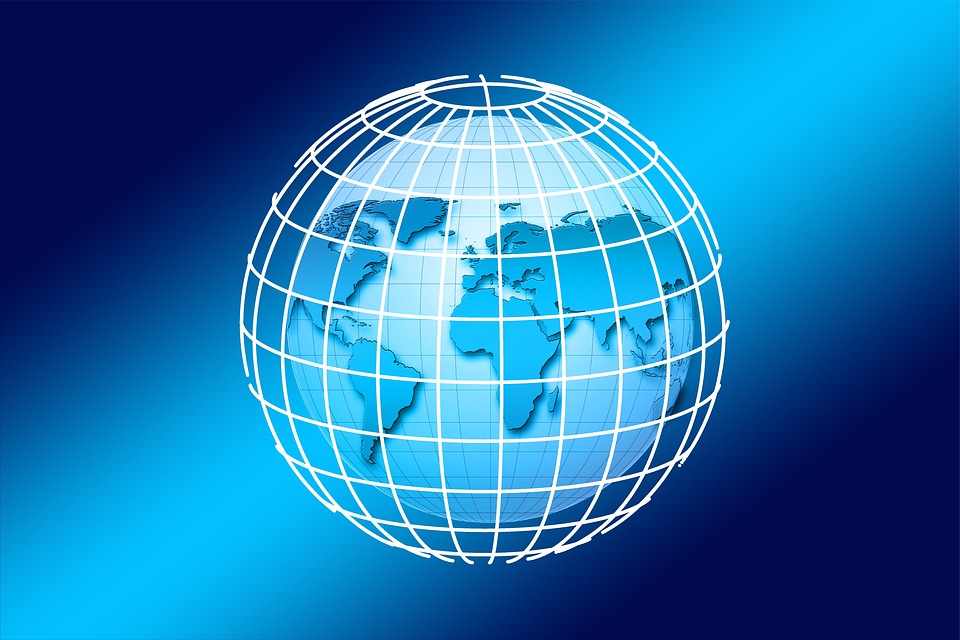Globalization is a phenomenon based on the continuous increase in the interconnection between the different nations of the world on the economic, political, social and technological levels.
The use of this term has been used since the eighties. That is, since technological advances have facilitated and accelerated international commercial and financial transactions. And for this reason, the phenomenon has as many defenders - such as the International Monetary Fund (IMF) or the World Bank - as detractors.
In this process there is an economic interdependence, where companies and markets go beyond national borders and reach a global dimension.
It is a particularly economic process, where an integration of national economies takes place, causing an increase in the volume and complexity of the exchange of goods and services in the world economy.
The market for goods and services travels freely to any country in the world, due to the great openness that has occurred in the trade and investment sector. At present, factors of production such as capital, labor and technology flow from one country to the other with great ease, thanks to the process of globalization.
Globalization has made markets internationalize, this implies that any producer competes with all producers in the world. The competition is becoming stronger because it must compete with companies that apply technology and innovation, delivering better products produced at low cost.
What capital is mobilized?
When we talk about the free flow of capital, we are talking about three types of capital:
- Commercial capital: It is the capital that is used in the commercialization of goods and services in the world market, to obtain profits. As an example, we can mention the Shell company, which sells gasoline in almost every country in the world.
- Productive capital: It is the capital that is invested in the purchase of production factors to manufacture goods and services. The example of a company that invests in productive capital is Nike, which has its production factories in China and Vietnam.
- Financial capital: It is all the money that is invested in another country in the form of foreign direct investment or through credits. In this case, we can mention the Nestlé company that invests in many countries around the world as a large transnational company.
Characteristics of globalization
Globalization is a fairly complex process that has a series of characteristics that we mention below:
- It facilitates access to a greater number of goods and services.
- Accelerate the learning and research process.
- It is based on new technologies and internet access.
- Allows you to combine cultures from different countries or geographic areas.
- It promotes tourism and the mobility of people.
- Encourage specialization.
Causes and consequences of globalization
The globalization process begins in the 20th century. This is due to a change in the geopolitical strategy of the different world economic powers. From this moment on, barriers to international trade began to be eliminated and agreements as important as the creation of the European Union were reached. These types of measures made it possible to liberalize trade between countries and begin this process.
On the other hand, the advancement of technologies and communications made it possible to simplify international operations. In this sense, the development of the internet has made it possible to acquire a product manufactured anywhere in the world without leaving home.
Along with this, another of the effects of globalization is innovation in the world of transport. This R & D & I process has made it possible to develop much more efficient means of transport, lowering their costs and favoring the exchange of goods between countries.
As for the consequences, globalization has improved the quality of life of the planet's inhabitants because it has facilitated access to many goods and services. Although it is true, it has also generated situations of companies with a very large market power and that suffocate small businesses.
Likewise, the culture of each country is modified by customs imported from other countries. Today, we can find traits in the society of each nation that are not indigenous, generating a globalized and generalist culture.
Globalization actors
Although all economic agents participate in globalization, there are some that are especially relevant:
- Multinational banks: They are formed with foreign capital and participate in investment financial operations, their objective is to increase their capital by supporting multinationals in their investments in different countries.
- Multinational companies : These are companies that sell goods and services abroad, or also produce goods and services abroad in their different subsidiaries. They have a strong global presence, are large, have a high degree of integration and are financially independent.
- International institutions : These are organizations that facilitate commercial and financial transactions between globalization actors. They are entities such as the International Monetary Fund, the World Bank, the World Trade Organization, among others.
Advantages offered by globalization
Among the most notable advantages or opportunities we have to:
- Larger markets : Markets are becoming larger due to the fact that there are more and more trade agreements and free trade agreements, which hope to make the international trade process between the different nations of the world more homogeneous and easier.
- Taking advantage of the economy of scale : As the market grows larger, companies can take advantage of producing at higher levels and this allows them to reduce their production costs, making their production chain more efficient and economical.
- Quick access to modern technology: This access to all modern forms of technology enables companies to improve their production, transportation and communication processes within the markets in which they compete. Facilitating all your processes in a real and effective way.
Risks of globalization
- You have to compete with more companies and products: Companies compete with all producers in the world due to deregulation and easy access to different markets in the world. This forces us to be more competitive, since we compete with all kinds of companies.
- Consumers are more demanding: Due to the improvements observed in communication processes, consumers are better informed and this makes them increasingly ask for greater added values in the delivery of market proposals.
- Less profit margin: The more competition, the more the difference between the cost of production and the selling price of the product is reduced. So companies can see their profit margin reduced.
- Permanent innovation : Innovation is a priority requirement in current markets, because the company that does not innovate disappears from the market. Your products quickly become obsolete in the face of value-added improvements from the competition.
Finally, we can say that companies have had to adapt to the globalization process. They have had to change radically, since world markets are becoming more free, open and globalized. They have to learn to be competitive, because the economy is increasingly integrated and this means that there are globalized standards in the production and marketing processes.
In the global marketplace, all companies can access technology, capital, labor and customers from anywhere in the world with little or no restrictions.
To cope with the global environment and with growing global competition, companies must increase their capacity for adaptation and innovation; as well as they must improve their productivity processes, to achieve production processes with low costs.
Criticism of globalization
Its biggest critics assure that this phenomenon fosters greater inequality within each nation and between different countries, undermining the particular identity of each people. Other arguments of no less weight maintain that the global process favors privatization, increases competition and overexploits the environment.
More specifically, the IMF ensures that the countries that have integrated into the world economy have registered faster monetary growth and have managed to reduce poverty. In fact, the financial organization maintains that most of the East Asian countries, which were among the poorest in the world 40 years ago, have become prosperous countries thanks to the application of policies of opening to the outside. In addition, as living conditions improved, they advanced in their democratic process and, economically, they made progress on issues such as the environment and working conditions.
However, and according to the Monetary Fund, “the opportunities offered by globalization have as a counterpart the risk of the volatility of capital flows and the possibility of deterioration of the social, economic and environmental situation; For all countries to benefit from globalization, the international community should strive to help the poorest nations integrate into the world economy, supporting reforms that strengthen the global financial system to achieve faster growth and ensure lower income. poverty".
For their part, anti-globalization activists demand a fairer society, control of the unlimited power of multinationals, democratization of global economic institutions, and a more equitable distribution of wealth; In fact, the cancellation of the foreign debt is one of the demands of this movement and, therefore, they blame the World Bank and the IMF for the suffocating situation in which most of the poor countries find themselves, unable to cope with the crisis. debt that in many cases exceeds its GDP (Gross Domestic Product).
Examples of globalization
Today it is easy to find cases of globalization in our daily life. We propose the following examples:
- Feeding: Food is one of the aspects that has become more global. We can buy a hamburger or pizza to eat anywhere on the planet without the need to be in the country that developed that food.
- Audiovisual content: Streaming platforms allow us to listen to songs by any artist on the planet or watch a series produced in the United States from wherever we are.
- Learning new languages: It is one of the most representative examples of this process. The learning of new languages is linked to an increasingly globalized world in which it is required to be able to communicate with anyone on the planet.
Luke is passionate about fostering student involvement and connection. He studied psychology for his major and likes learning about the past. Luke aims to specialize in artificial intelligence and cybersecurity. .
Leave a reply
Your email address will not be published. Required fields are marked *Recent post

